- Home
- Heather Graham
Easter, the Krewe and Another Large White Rabbit
Easter, the Krewe and Another Large White Rabbit Read online
Easter, the Krewe and Another Large White Rabbit
Heather Graham
Easter, the Krewe and Another Large White Rabbit
Copyright © 2020 by Slush Pile Productions
All rights reserved. This publication may not be reproduced, in whole or in part, stored in a retrieval system, or transmitted, in any form or by any means, including electronic, mechanical, photocopying, recording, or otherwise, without the prior express written permission of the author. Unauthorized reproduction of this material, electronic or otherwise, will result in legal action.
Please report the unauthorized distribution of this publication by contacting the author at theoriginalheathergraham.com, via email at [email protected], or at Heather Graham 103 Estainville Ave., Lafayette, LA 70508. Please help stop internet piracy by alerting the author with the name and web address of any questionable or unauthorized distributor.
Easter, the Krewe and Another Large White Rabbit is a work of fiction. The people and events in Easter, the Krewe and Another Large White Rabbit are entirely fictional. The story is not a reflection of historical or current fact, nor is the story an accurate representation of past or current events. Any resemblance between the characters in this novel and any or all persons living or dead is entirely coincidental.
Prologue
It was there again.
The face.
Pressed against the window, looking in. This time, it was at her kitchen window; she’d gone through the house, closing all the drapes. She’d done her best to see that windows and doors were locked.
But she’d missed the kitchen window and there it was again . . . the face. It was eerie, ghostly, shrouded in fog.
The face of the dead! A man with a beard and mustache. She didn’t think about any of the particulars at first; it had all but stopped her heart forever when she’d seen it there. But closing the drapes, she tried to think logically. It had been a man’s face and that man had appeared to be between forty and fifty years old, with salt and pepper slightly bushy hair, and with pronounced, arched brows, a full beard and mustache.
Eerie, so eerie. He looked like someone who might have stepped back from the past.
She winced.
Ghost stories. The area abounded with them, and most of them were of the deadly battles that had raged in the area during and just after the Civil War. The ground itself was soaked in blood, and that allowed for . . . faces in the windows?
Get a grip!
Eliza had turned seventy that January. She’d lived here all her life; Reggie had passed on at the age of eighty just three years ago. Their children had children and grandchildren. They were sequestered in their homes, Brianna down in Richmond and Riley in Atlanta where his essential work at a lab kept him busy. Normally, they’d be together now. Easter. They always came home for Easter. This year, they could not. But she’d assured them over and over again, that she was all right. And she was! She exercised daily, she kept busy with her craft projects and books. She had Arthur—her cat. She was a busy and utile person!
But now . . .
The doorbell rang. She wasn’t going to answer it; she knew what it was going to be.
A basket.
She started shaking. She lived in a small town; the house had no security system. Yes, she was competent. It was locked in every way possible to be locked. She’d lived here her entire life, except for her excursion to college—what seemed like a million years ago now. She had travelled far and wide once she had married, but she’d always come home.
She’d never been afraid.
Thump. Thump, thump.
Her heart was beating again, and yet . . .
The baskets came. And the face in the window. And she was terrified.
She was mobile, she was of sound mind and body. She was capable and intelligent and . . .
She hurried to the front door and then paused, exhaling. She had flowers arranged in the house and she’d gone to church for drive-thru palms on Palm Sunday and a nice Easter display—if only for herself. She’d planned on watching Easter services on her computer, as were so many people.
She gave herself a little shake; she’d waited, she thought, long enough. Pulling back the curtain by the front window, she looked out on the porch.
Yes. There was another basket on her doorstep.
And as she started to close the drape, she saw it again.
The face.
In a mist; in a cloud of mist or fog . . .
It disappeared.
And Eliza sank to the floor, not even screaming. She couldn’t summon the breath to do so, and it seemed everything had stopped.
Silence. Maybe she was . . . dying.
But then, thump.
Thump, thump, thump.
She was still alive.
She rose with determination and grabbed her phone.
Chapter 1
“Jackson, no matter what is going on in the world, law enforcement remains necessary.”
Angela Hawkins knew what she was saying was true. And she knew her husband, Jackson Crow, field director for their unit, the Krewe of Hunters, knew what she was saying was true, too.
She also knew he was going to argue with her—and with good cause. Life had changed for them since Christmas; they’d adopted a wonderful son, Corby, and she’d discovered that she was pregnant. And before the pandemic had been known, she had spent most of her time in the office, supervising their staff of brilliant researchers who worked tirelessly providing those in the field with information on the living and the dead.
Jackson was frowning. She lowered her head, smiling. He was a striking man with Native American and European blood in his veins. But he was also so much more. He could be hard and resolute, necessary when ferreting out killers. But his greatest asset to her was his passion for humanity—all humanity.
“Angela, as this goes on, things will likely get worse. There will be those who find useful things to do in quarantine—”
“We’ve caught up on every episode of Sherlock,” she said, smiling.
He sighed. “And those who go a little mad. And since liquor stores and gun shops are still considered necessary, we may have those who go crazy out on the streets, though that’s the kind of thing the police handle. But we are law enforcement; we will need to put our agents in the field as necessary. And the Krewe has many agents. Angela, we now have a son and he’s going to have a little brother, and no one thinks any the less of you for not being in the field—”
“Jackson, this needs to be me. Or us, if you like. The McFadden brothers do a great job managing as a threesome when you’re out. Jackson—”
“Your friend is being haunted by the Easter Bunny,” he said dryly.
“Jackson, that’s the point; this is probably nothing. But old Eliza Andrews was a dear friend to my grandmother; she was amazing when I visited as a child. There probably isn’t a safer place in America at the moment. Her little corner of Virginia has a population of less than two-thousand and her house is an old manor house in the middle of nowhere. She’s elderly, Jackson.”
“And haunted by the Easter Bunny.”
Angela hesitated. “It’s a little more than that. She keeps seeing a man’s face in her window,” Angela admitted. “She—she thinks he’s the ghost of a man killed at the end of the Civil War, and he may . . . well, he may want revenge on her.” She hesitated again. “There was a horrible incident there at the end of the war. Both sides were guilty of what happened. The war was over and the news was out, but two sets of soldiers just struggling to get home ran into one another. There was a verbal fight that accidentally turned lethal when a soldier
dropped a rifle and it fired, killing one of the Yankee soldiers who—as he fell—killed one of the Rebel soldiers. They had all just been trying to get home. Anyway, it was stopped by a gentleman who was just gettinig home—Eliza is one of his descendants. He walked out in the line of fire and begged them all to stop. No one wanted more bloodshed—and Eliza’s however-many-greats implored everyone to stop and reminded them they had a chance to live. To find peace.”
“Why would anyone want revenge on him? Sounds like he was a good guy.”
“I’m guessing he was, but he was involved, and two people died well after the killing should have been over. But it’s the two things happening, Jackson. The baskets being left at her door, and the face that keeps showing up at her windows.”
“You know, Sunday is Easter,” Jackson reminded her.
“Yes, I know.” Again, she hesitated. “Passover and Easter season, and no matter what is going on, it would be great if we all remembered the love and peace we should be celebrating. I don’t know the significance of Easter to what’s going on. The men didn’t die until the end of April in 1865, and Easter Sunday that year was March 27th. But it’s just been with Easter coming up that Eliza has been getting scared. She thinks she’s seeing dead men at her window, but she’s afraid someone did want revenge. You know how crazy people can be! Perhaps a descendant of one of the men who did die, pretending to be the Easter Bunny, dropping things at her door—”
“What kind of things?”
“Um—Easter baskets.”
“Easter baskets? Are there written threats in them, or warnings, or—chocolate eggs?”
“I think she said there was a chocolate something. But no, the baskets contain things she might need in quarantine. Fever medicine, cough medicine, hand sanitizer, alcohol wipes . . . .” She paused and added, “Toilet paper.”
“That doesn’t sound like an evil Easter bunny. Maybe someone from a local church?”
“No, there’s only one active church anywhere near. It’s an Anglican church. She knows the priest and everyone else. So no, it’s no one from the church.”
“And that’s worrisome?”
“Along with faces in the window and the fact she’s seen the Easter bunny—or whoever—leaving.”
“But you feel you need to go out there?”
“Jackson, she’s scared. And something could be going on.” She exhaled. “We both know ghosts can learn to manipulate the air—perhaps push buttons and cause small changes to the environment to either help someone or scare someone. But I’ve yet to hear of a ghost that goes shopping for Easter goods!”
“But we can send another agent—”
“Jackson, please? She’s a dear friend. And I’m a good agent. And I won’t risk myself or the child, I promise.”
He let out a deep sigh. “All right, quarantine and Easter Sunday. I am keeping our agents as safe as possible and managing as much as possible with only a skeletal crew in the office. I’ll speak to the McFadden’s and they will take different shifts starting out Saturday night. You can head out now if you wish, and Saturday night Corby and I will come up and meet you. But Angela—”
“Jackson! I’ve wanted this baby as much as you. Corby is longing to have his little brother. I love my life! I will be careful. Gloves and a mask at all times except in Eliza’s house. She’s been self-quarantined for weeks now. Oh! And she wiped down all the items in the Easter baskets. And if you bring Corby, we can have Easter with Eliza as a family. I will be careful!”
“Of the virus—and bullets. And knives, poison, arrows—”
“Yes, Jackson. I went through the academy with flying colors, and I was already excellent at firearms and self-defense.”
Jackson nodded slowly. She knew it was hard for him. She was an agent as qualified as anyone, but she was also his wife and he loved her. He put his own life on the line often enough, and logically, he knew that.
He still feared for her, but he would always respect her, too.
“Okay, then,” he murmured.
She rose and walked around her desk. She lived with him—it was okay to kiss him. He had taken great care with the office, sectioning off areas for his workers with plexiglass so that they could maintain their proper distance.
He was a great boss, she thought, beneath Adam Harrison, their founder with a title of Assistant Director. Adam had founded the Krewe due to his love for people, and his realization there was a very small percentage of people who could see the dead. Most of whom never admitted it lest they wind up locked away.
Adam had a talent for fettering them out. And together, he and Jackson ran a special unit with respect for all agents and techs and drivers and cleaning crew and anyone else associated in any way.
She loved him dearly.
But their kiss wasn’t long; people were social distancing, and this was still where they worked.
“It means a lot to me, Jackson,” she told him.
“Yeah, I can see that. Or I’d be pulling rank,” he told her.
She smiled. He never pulled rank. But it was fine for him to think he might.
“Corby is home now, doing his homework, but—”
“He knows; I talked to him before I came in here to make sure everything was set for anyone who needed my computer resources. Corby—he insisted I go. We adopted a wonderful boy,” she reminded him.
“Do you have any research in there on the area?” He asked, indicating her work computer with its large screen and equipment that dominated her desk. But before she could answer, he shook his head. “Of course, you do. May I?”
“Yes, it would be wonderful if you got up to speed.”
“I will then get up to speed,” he promised.
“Jackson, I’m going to rush out. I’m afraid she’s so frightened that—”
“She might have a heart attack.”
“Yes.”
“Go.”
“Right! I’m going.”
But before she could leave, the phone on her desk rang.
“Hawkins,” she said, answering the call.
It was Eliza on the other end. “Angela! I’m so scared! It was there again, Angela. You know me, I’m not usually . . . a chicken. But it’s been there again, twice. A face in the window. Red eyes . . . terrifying . . . looking . . . just looking, staring in at me. Oh, God, Angela, please, I’m so frightened!”
“Eliza, I’m on my way. We’ll find out what’s up. Just hang in until I get there; you’ll be okay. Stay inside—don’t step out at all until I get there.”
“My God, I won’t, I won’t . . . I’ve called Ely Carter, the sheriff. There’s only him and Raymond, his deputy. I mean, the town doesn’t need more because of the size. He’s coming--when he can--but he thinks I’m crazy! Days ago, I even showed him one of the baskets and he . . . he thinks I’m crazy, Angela. He believes the basket came UPS or through the mail and it’s someone just trying to help, and he doesn’t believe me about the faces in the windows. I hate being this kind of a wimp, but I’m so scared, Angela!”
“I’m on my way,” she promised, looking at Jackson.
“I’ll get there as soon as I can,” he promised.
Angela grabbed her shoulder bag and the little overnight bag she’d packed, counting on Jackson’s okay.
He arched a brow but didn’t protest.
“Be safe,” he said softly.
“I promise; I will,” she vowed, and she hurried out of the building and down to her car.
Chapter 2
Jackson’s first move when Angela had gone was to call Brodie McFadden. He’d managed to keep his unit working at home, heading directly to any assignment from their own place of residence, and thus stemming the possibilities of cross-exposure when they were forced to work in the field.
They’d discovered it was true that times of trouble brought out the best and the worst in people. They had a recent case in which a man had fallen into depression, discovered that one could still buy a gun and a lot of liquor, and decid
ed his wife was the ghost of a long lost ancestor, and one could shoot a ghost to rid oneself of a haunting. The problem was he’d begun to stalk the neighborhood, shooting at anything that moved.
Because of the suspicion of “unusual” activity, the Krewe had been brought in.
It had been unusual—the man was customarily a mild-mannered accountant. Jackson was grateful his agent had talked him down and brought him in before anyone had become a ghost, and even a German shepherd, nicked in the tail by a bullet, was doing well.
Local police, he knew, had faced many problems. There were those who would loot and steal no matter what the situation; and there were those who would offer up help, doctors and nurses who had retired who would go back to work, along with some of the most important and least heralded people on the work force—the janitorial staffs keeping hospitals and other institutions clean. Those people who might not be rich but were going to make it—and donated to groups supplying food, clothing, and medicines to those who couldn’t keep up.
They’d had meetings at Krewe headquarters, talked about safety measures for working in the field. Once, all they’d had to learn was how to dodge bullets, knives, and other lethal weapons. Now, they’d be fighting a miniscule but deadly little enemy on every case as well.
He knew Angela would be careful and she was right—Eliza’s little town would be a place that was safe as any could be—he knew the town. People lived far apart; they knew one another, and they respected the law. Eliza, he was sure, had stayed home when the word had gone out for people to stay home. And she was probably all right—maybe even seeing things because she’d been alone a long time now. But Angela might be right, too. He’d just read about a shooting in Miami—handled by the Miami police—but law enforcement was still needed because crime didn’t stop. And maybe someone was trying to torment Eliza before coming in for the kill for any number of demented reasons.
Jackson keyed into Angela’s computer seeking information on the incident. The truth of the matter was sad enough. General Lee had surrendered to Grant on April 9th, 1865. While that marked the beginning of the end, Kirby-Smith had fought on in Texas and other battles had taken place. But for the Confederates in Lee’s Army of Northern Virginia, it had been over. There would be other battles and official paperwork to mark the end of the hostilities, but the soldiers struggling through the countryside to return home at the end of April in 1865, had no reason to kill one another.

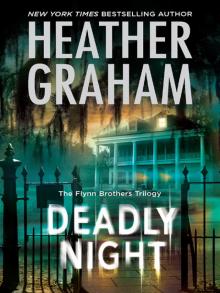 Deadly Night
Deadly Night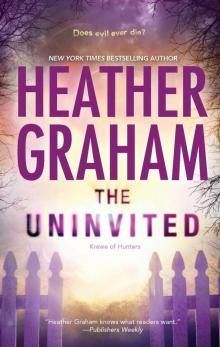 The Uninvited
The Uninvited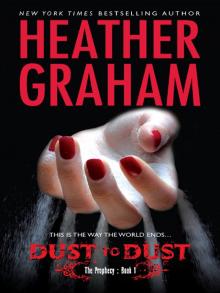 Dust to Dust
Dust to Dust Heart of Evil
Heart of Evil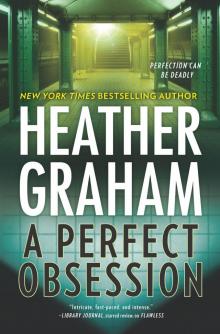 A Perfect Obsession
A Perfect Obsession The Keepers
The Keepers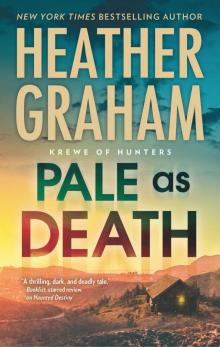 Pale as Death
Pale as Death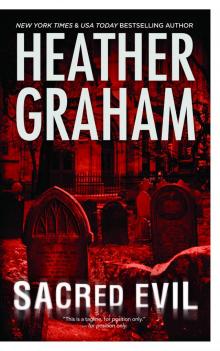 Phantom Evil
Phantom Evil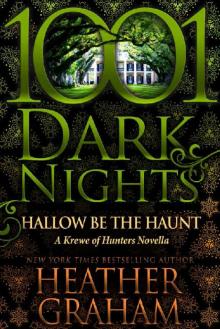 Hallow Be the Haunt
Hallow Be the Haunt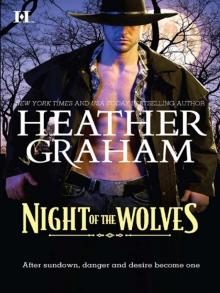 Night of the Wolves
Night of the Wolves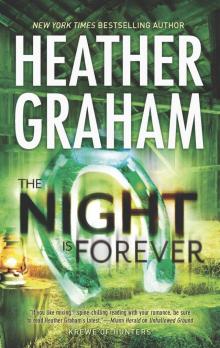 The Night Is Forever
The Night Is Forever Golden Surrender
Golden Surrender Kiss of Darkness
Kiss of Darkness Beneath a Blood Red Moon
Beneath a Blood Red Moon A Dangerous Game
A Dangerous Game Ghost Shadow
Ghost Shadow Long, Lean, and Lethal
Long, Lean, and Lethal Fade to Black
Fade to Black The Rising
The Rising And One Wore Gray
And One Wore Gray Rebel
Rebel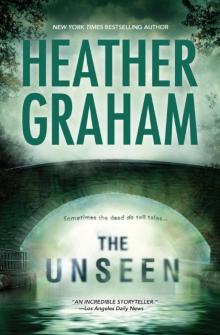 The Unseen
The Unseen The Night Is Watching
The Night Is Watching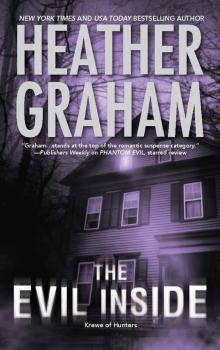 The Evil Inside
The Evil Inside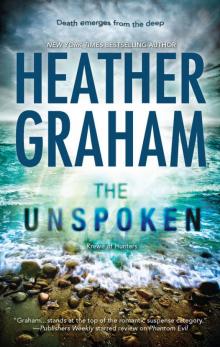 The Unspoken
The Unspoken The Night Is Alive
The Night Is Alive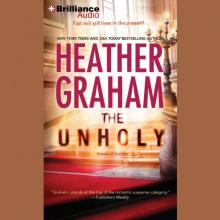 The Unholy
The Unholy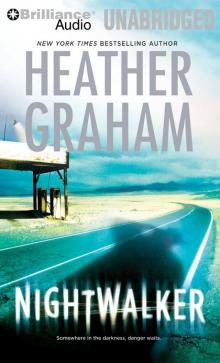 Nightwalker
Nightwalker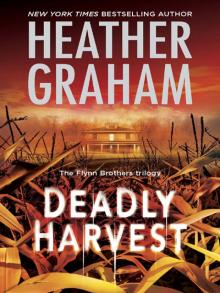 Deadly Harvest
Deadly Harvest An Angel for Christmas
An Angel for Christmas A Pirate's Pleasure
A Pirate's Pleasure American Drifter
American Drifter Realm of Shadows
Realm of Shadows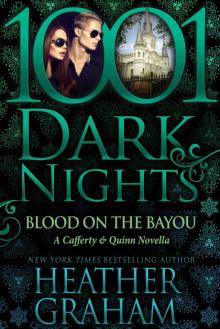 Blood on the Bayou
Blood on the Bayou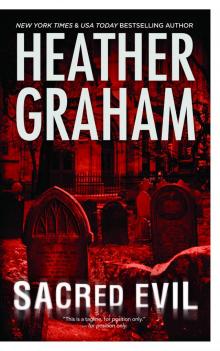 Sacred Evil
Sacred Evil Dying to Have Her
Dying to Have Her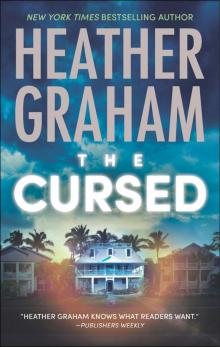 The Cursed
The Cursed Captive
Captive Hurricane Bay
Hurricane Bay Drop Dead Gorgeous
Drop Dead Gorgeous Ghost Memories
Ghost Memories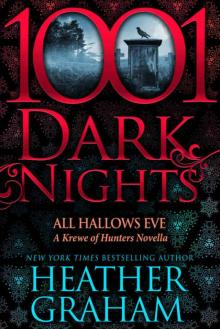 All Hallows Eve
All Hallows Eve Dying Breath
Dying Breath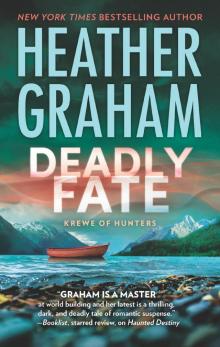 Deadly Fate
Deadly Fate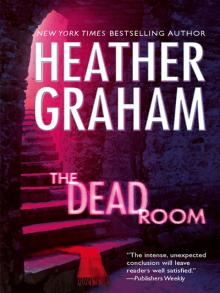 The Dead Room
The Dead Room Lord of the Wolves
Lord of the Wolves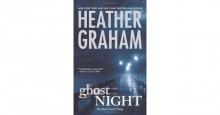 Ghost Night
Ghost Night Ghost Walk
Ghost Walk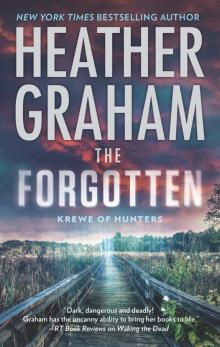 The Forgotten
The Forgotten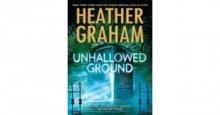 Unhallowed Ground
Unhallowed Ground One Wore Blue
One Wore Blue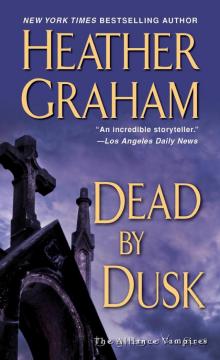 Dead By Dusk
Dead By Dusk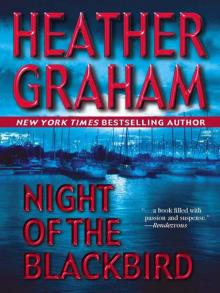 Night of the Blackbird
Night of the Blackbird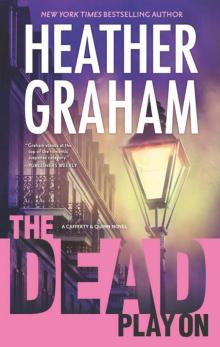 The Dead Play On
The Dead Play On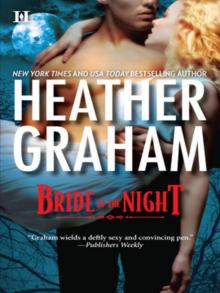 Bride of the Night
Bride of the Night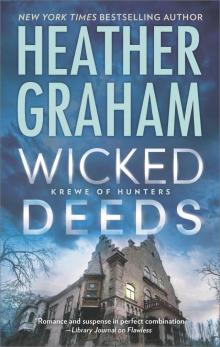 Wicked Deeds
Wicked Deeds The Forbidden
The Forbidden Triumph
Triumph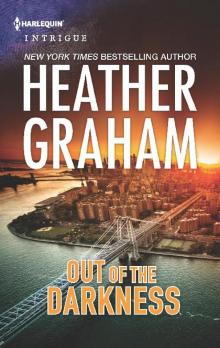 Out of the Darkness
Out of the Darkness Love Not a Rebel
Love Not a Rebel The Last Noel
The Last Noel Tall, Dark, and Deadly
Tall, Dark, and Deadly The Death Dealer
The Death Dealer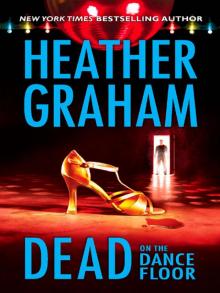 Dead on the Dance Floor
Dead on the Dance Floor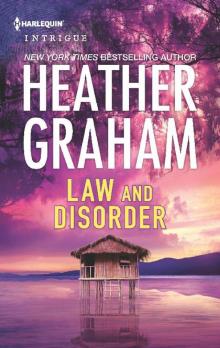 Law and Disorder
Law and Disorder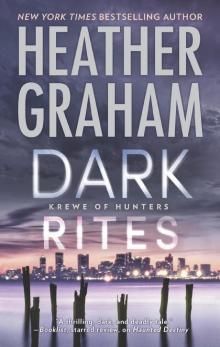 Dark Rites
Dark Rites New Year's Eve
New Year's Eve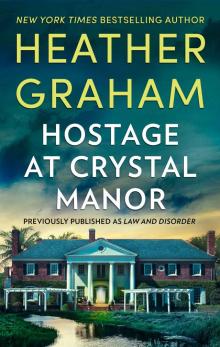 Hostage At Crystal Manor
Hostage At Crystal Manor And One Rode West
And One Rode West Home in Time for Christmas
Home in Time for Christmas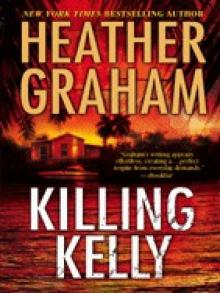 Killing Kelly
Killing Kelly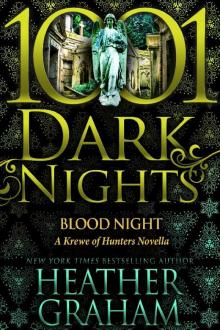 Blood Night
Blood Night Tangled Threat (Mills & Boon Heroes)
Tangled Threat (Mills & Boon Heroes)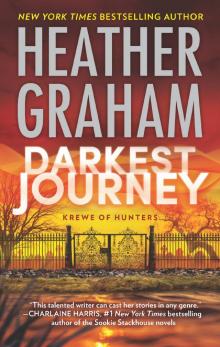 Darkest Journey
Darkest Journey Glory
Glory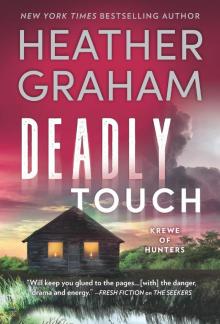 Deadly Touch
Deadly Touch An Unexpected Guest
An Unexpected Guest Night of the Vampires
Night of the Vampires Seize the Wind
Seize the Wind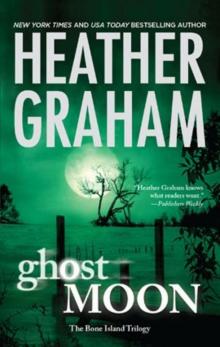 Ghost Moon
Ghost Moon The Vision
The Vision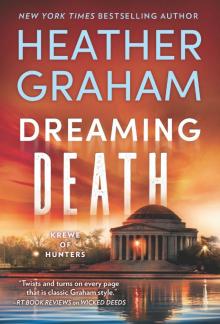 Dreaming Death
Dreaming Death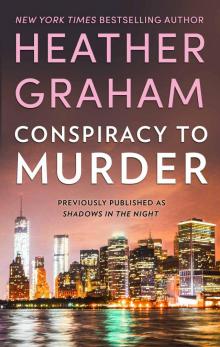 Conspiracy to Murder
Conspiracy to Murder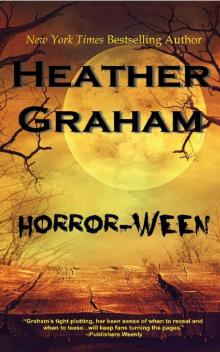 Horror-Ween (Krewe of Hunters)
Horror-Ween (Krewe of Hunters)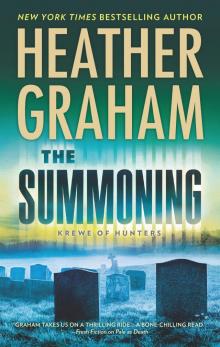 The Summoning
The Summoning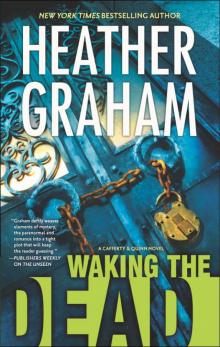 Waking the Dead
Waking the Dead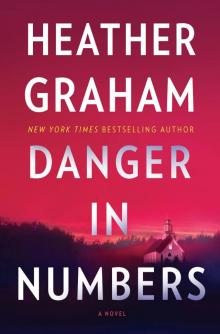 Danger in Numbers
Danger in Numbers The Hidden
The Hidden Sweet Savage Eden
Sweet Savage Eden Tangled Threat ; Suspicious
Tangled Threat ; Suspicious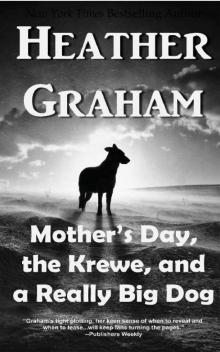 Mother's Day, the Krewe, and a Really Big Dog
Mother's Day, the Krewe, and a Really Big Dog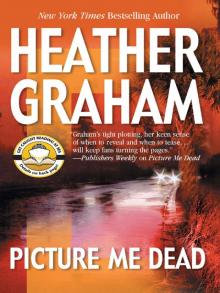 Picture Me Dead
Picture Me Dead The Killing Edge
The Killing Edge St. Patrick's Day
St. Patrick's Day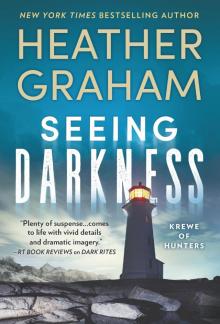 Seeing Darkness
Seeing Darkness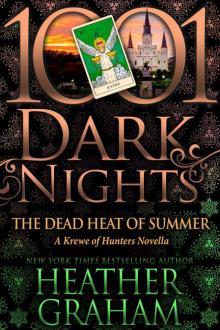 The Dead Heat of Summer: A Krewe of Hunters Novella
The Dead Heat of Summer: A Krewe of Hunters Novella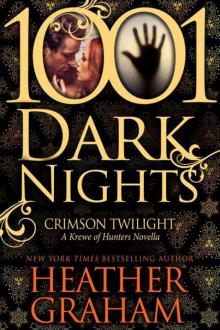 Crimson Twilight
Crimson Twilight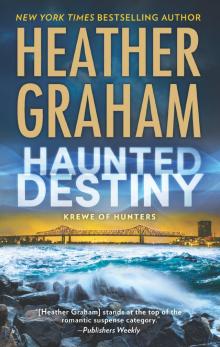 Haunted Destiny
Haunted Destiny Devil's Mistress
Devil's Mistress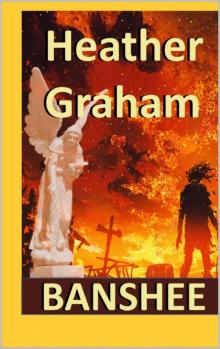 Banshee
Banshee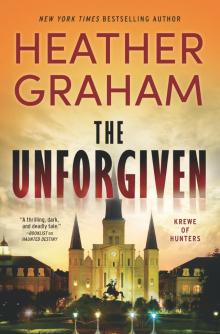 The Unforgiven
The Unforgiven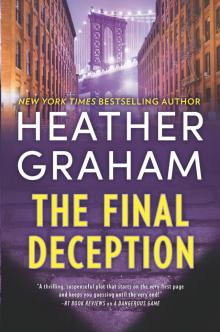 The Final Deception
The Final Deception A Horribly Haunted Halloween
A Horribly Haunted Halloween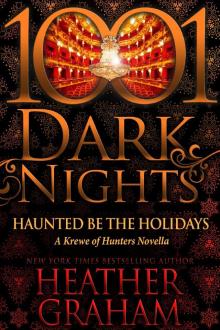 Haunted Be the Holidays
Haunted Be the Holidays Deadly Gift
Deadly Gift Easter, the Krewe and Another Large White Rabbit
Easter, the Krewe and Another Large White Rabbit Haunted
Haunted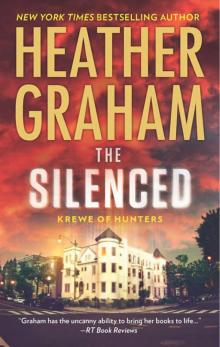 The Silenced
The Silenced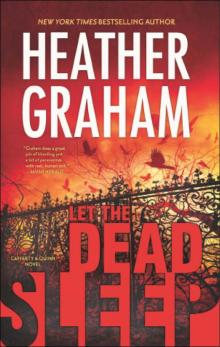 Let the Dead Sleep
Let the Dead Sleep Christmas, the Krewe, and Kenneth
Christmas, the Krewe, and Kenneth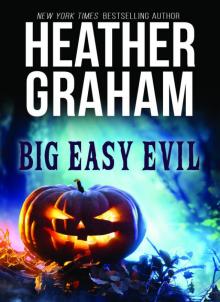 Big Easy Evil
Big Easy Evil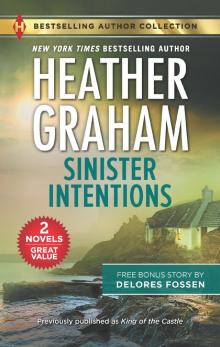 Sinister Intentions & Confiscated Conception
Sinister Intentions & Confiscated Conception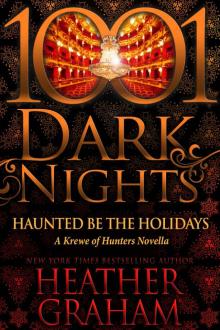 Haunted Be the Holidays: A Krewe of Hunters Novella
Haunted Be the Holidays: A Krewe of Hunters Novella Blood Red
Blood Red A Perilous Eden
A Perilous Eden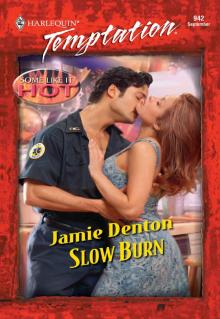 Slow Burn
Slow Burn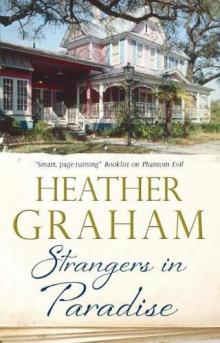 Strangers In Paradise
Strangers In Paradise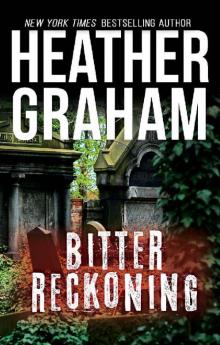 Bitter Reckoning
Bitter Reckoning Krewe of Hunters, Volume 1: Phantom Evil ; Heart of Evil ; Sacred Evil ; The Evil Inside
Krewe of Hunters, Volume 1: Phantom Evil ; Heart of Evil ; Sacred Evil ; The Evil Inside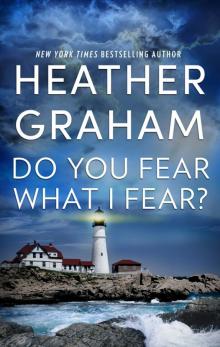 Do You Fear What I Fear?
Do You Fear What I Fear? The Face in the Window
The Face in the Window Krewe of Hunters, Volume 3: The Night Is WatchingThe Night Is AliveThe Night Is Forever
Krewe of Hunters, Volume 3: The Night Is WatchingThe Night Is AliveThe Night Is Forever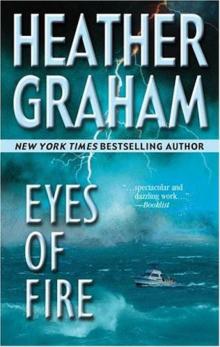 Eyes of Fire
Eyes of Fire Apache Summer sb-3
Apache Summer sb-3 Sensuous Angel
Sensuous Angel In the Dark
In the Dark Knight Triumphant
Knight Triumphant Hours to Cherish
Hours to Cherish Tender Deception
Tender Deception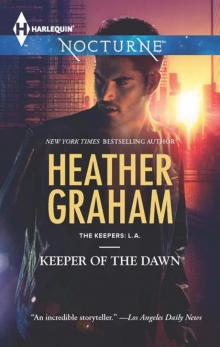 Keeper of the Dawn tkl-4
Keeper of the Dawn tkl-4 Apache Summer
Apache Summer Between Roc and a Hard Place
Between Roc and a Hard Place Echoes of Evil
Echoes of Evil The Game of Love
The Game of Love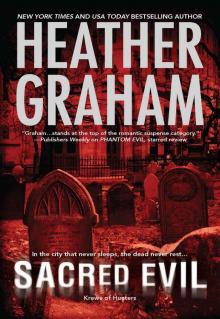 Sacred Evil (Krewe of Hunters)
Sacred Evil (Krewe of Hunters) Bougainvillea
Bougainvillea Tender Taming
Tender Taming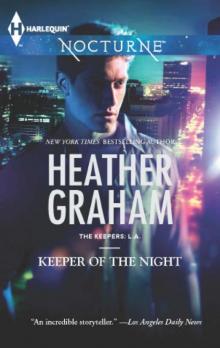 Keeper of the Night (The Keepers: L.A.)
Keeper of the Night (The Keepers: L.A.) Lonesome Rider and Wilde Imaginings
Lonesome Rider and Wilde Imaginings Lucia in Love
Lucia in Love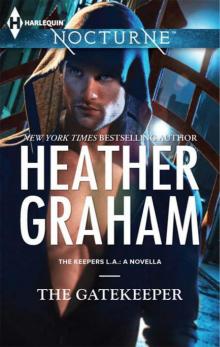 The Gatekeeper
The Gatekeeper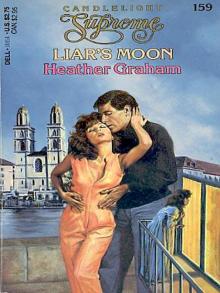 Liar's Moon
Liar's Moon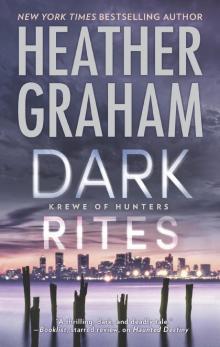 Dark Rites--A Paranormal Romance Novel
Dark Rites--A Paranormal Romance Novel A Season for Love
A Season for Love Krewe of Hunters, Volume 6: Haunted Destiny ; Deadly Fate ; Darkest Journey
Krewe of Hunters, Volume 6: Haunted Destiny ; Deadly Fate ; Darkest Journey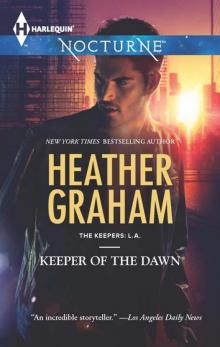 Keeper of the Dawn (The Keepers: L.A.)
Keeper of the Dawn (The Keepers: L.A.)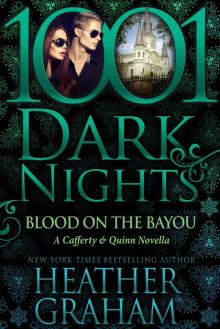 Blood on the Bayou: A Cafferty & Quinn Novella
Blood on the Bayou: A Cafferty & Quinn Novella Double Entendre
Double Entendre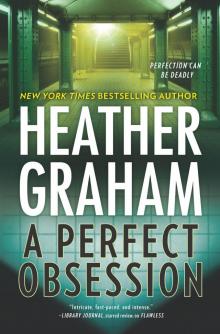 A Perfect Obsession--A Novel of Romantic Suspense
A Perfect Obsession--A Novel of Romantic Suspense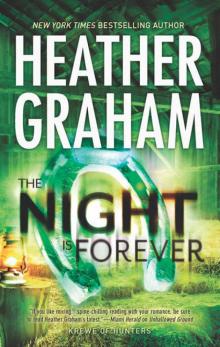 The Night Is Forever koh-11
The Night Is Forever koh-11 The Di Medici Bride
The Di Medici Bride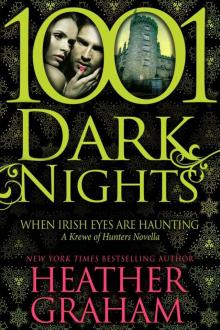 When Irish Eyes Are Haunting: A Krewe of Hunters Novella
When Irish Eyes Are Haunting: A Krewe of Hunters Novella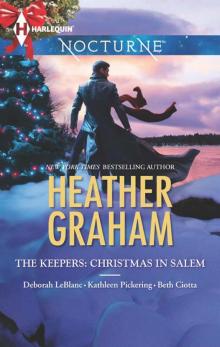 The Keepers: Christmas in Salem: Do You Fear What I Fear?The Fright Before ChristmasUnholy NightStalking in a Winter Wonderland (Harlequin Nocturne)
The Keepers: Christmas in Salem: Do You Fear What I Fear?The Fright Before ChristmasUnholy NightStalking in a Winter Wonderland (Harlequin Nocturne)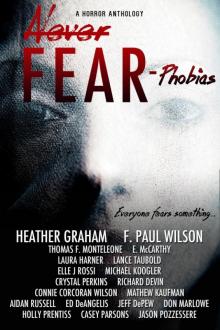 Never Fear
Never Fear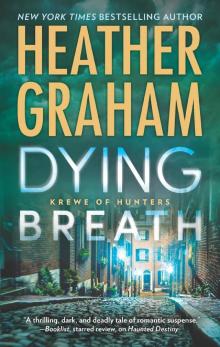 Dying Breath--A Heart-Stopping Novel of Paranormal Romantic Suspense
Dying Breath--A Heart-Stopping Novel of Paranormal Romantic Suspense If Looks Could Kill
If Looks Could Kill This Rough Magic
This Rough Magic Heather Graham's Christmas Treasures
Heather Graham's Christmas Treasures Hatfield and McCoy
Hatfield and McCoy The Trouble with Andrew
The Trouble with Andrew Never Fear - The Tarot: Do You Really Want To Know?
Never Fear - The Tarot: Do You Really Want To Know?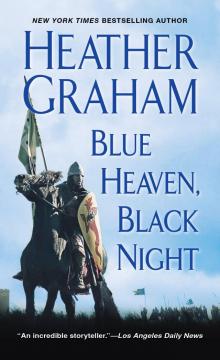 Blue Heaven, Black Night
Blue Heaven, Black Night Forbidden Fire
Forbidden Fire Come the Morning
Come the Morning Dark Stranger sb-4
Dark Stranger sb-4 Lie Down in Roses
Lie Down in Roses Red Midnight
Red Midnight Krewe of Hunters Series, Volume 5
Krewe of Hunters Series, Volume 5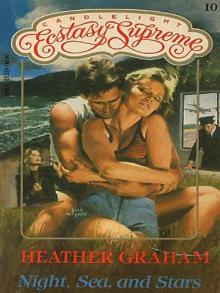 Night, Sea, And Stars
Night, Sea, And Stars Snowfire
Snowfire Quiet Walks the Tiger
Quiet Walks the Tiger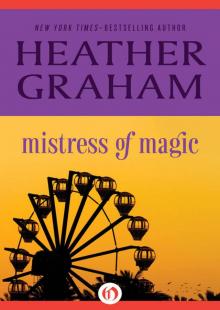 Mistress of Magic
Mistress of Magic For All of Her Life
For All of Her Life Runaway
Runaway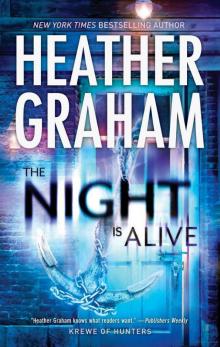 The Night Is Alive koh-10
The Night Is Alive koh-10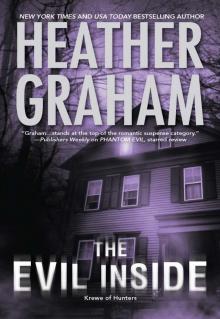 The Evil Inside (Krewe of Hunters)
The Evil Inside (Krewe of Hunters)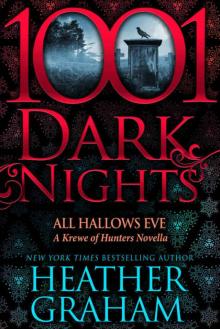 All Hallows Eve: A Krewe of Hunters Novella (1001 Dark Nights)
All Hallows Eve: A Krewe of Hunters Novella (1001 Dark Nights) Tomorrow the Glory
Tomorrow the Glory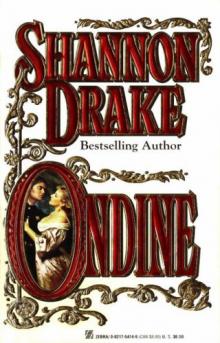 Ondine
Ondine Angel of Mercy & Standoff at Mustang Ridge
Angel of Mercy & Standoff at Mustang Ridge Bride of the Tiger
Bride of the Tiger When Next We Love
When Next We Love Heather Graham Krewe of Hunters Series, Volume 4
Heather Graham Krewe of Hunters Series, Volume 4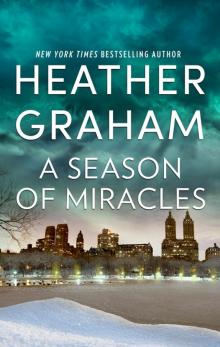 A Season of Miracles
A Season of Miracles Realm of Shadows (Vampire Alliance)
Realm of Shadows (Vampire Alliance) When We Touch
When We Touch Serena's Magic
Serena's Magic Rides a Hero sb-2
Rides a Hero sb-2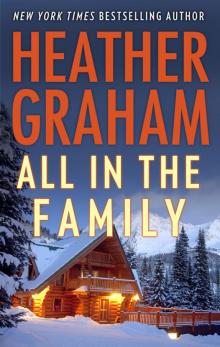 All in the Family
All in the Family Handful of Dreams
Handful of Dreams A Stranger in the Hamptons
A Stranger in the Hamptons Krewe of Hunters, Volume 2: The Unseen ; The Unholy ; The Unspoken ; The Uninvited
Krewe of Hunters, Volume 2: The Unseen ; The Unholy ; The Unspoken ; The Uninvited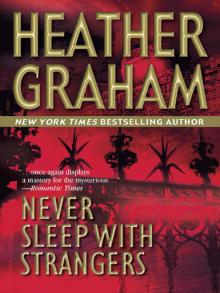 Never Sleep With Strangers
Never Sleep With Strangers Eden's Spell
Eden's Spell A Magical Christmas
A Magical Christmas Forever My Love
Forever My Love King of the Castle
King of the Castle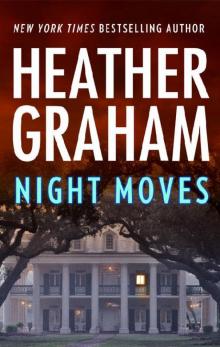 Night Moves (60th Anniversary)
Night Moves (60th Anniversary) The Island
The Island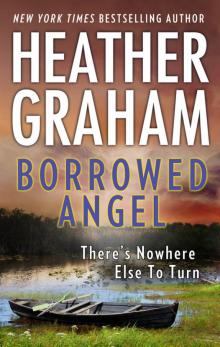 Borrowed Angel
Borrowed Angel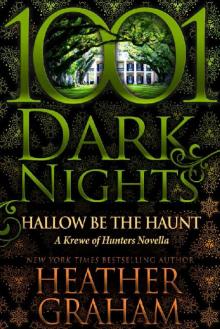 Hallow Be the Haunt: A Krewe of Hunters Novella
Hallow Be the Haunt: A Krewe of Hunters Novella Why I Love New Orleans
Why I Love New Orleans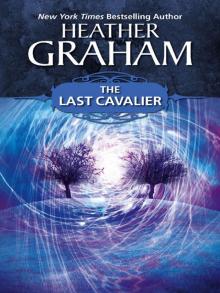 The Last Cavalier
The Last Cavalier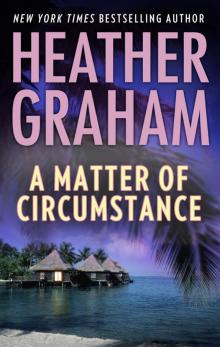 A Matter of Circumstance
A Matter of Circumstance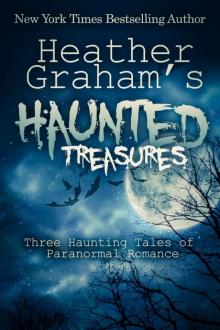 Heather Graham's Haunted Treasures
Heather Graham's Haunted Treasures Tempestuous Eden
Tempestuous Eden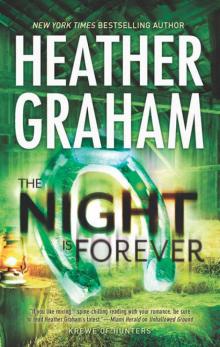 Krewe 11 - The Night Is Forever
Krewe 11 - The Night Is Forever